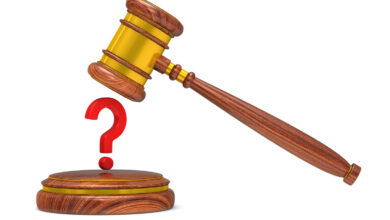Trump Accidentally Confirms Lavrov Account Of Putin Meeting
Trump’s Sunday morning tweet is more consistent with Lavrov’s readout than it is with the story that he “confronted” Putin.
Nobody has ever accused Donald Trump of being reluctant to make accusations, founded or not, in the most blunt, exaggerated terms.
In the last week alone, Trump called John Podesta “disgraceful” for having refused to give the Democratic National Committee server “to the FBI and the CIA.” Never mind that John Podesta had nothing to do with the DNC, and that the CIA is strictly prohibited from conducting domestic investigations. He has repeatedly referred to the American free press as “fake & fraudulent news media.” He has railed against “Crazy Joe Scarborough” and “dumb as a rock Mika.”
There are dozens of other examples, but you already get the point.
Given Trump’s predilection for hyperbole, bombast and meanness, it is more than a little interesting to note the cautious weasel words Trump reserves for one subject, Russia’s interference with our 2016 presidential election.
Take a look at his Sunday tweet about his meeting with Putin.
First, some context. The press has presented the respective readouts of the Trump-Putin meeting by Secretary of State Tillerson and Russian Minister of Foreign Affairs Sergei Lavrov as a “he said – he said” situation. Either Lavrov is telling the truth when he says that Trump accepted Putin’s denial of interference, or Tillerson is telling the truth when he says that Trump doggedly “raised concerns” about Russian interference. The question of the day is who should we believe?
But as I discussed in an earlier article, “Trump Hands Putin An Easy Victory On Russian Election Interference,” the two readouts are more similar than they are different. Tillerson never said that Trump had affirmatively confronted Putin with an unequivocal statement that he knew that Russia was the culprit. Rather, he said that Trump had raised the “concerns” of others in the United States, namely the American public and Congress.
In other words, Tillerson’s account is consistent with Trump having distanced himself personally from the belief that Russia interfered, and presented the “issue” as one that was causing him political difficulty in the United States. While there may be a nuanced difference between distancing himself and affirmatively “accepting” Putin’s denial, the difference is one of degree, not one of kind.
Given this rather murky background, it would be more than a little interesting to hear what Trump himself has to say about the meeting. We got that Sunday morning when Trump tweeted:
“I strongly pressed President Putin twice about Russian meddling in our election. He vehemently denied it. I’ve already given my opinion . . .”
This tweet is more consistent with Lavrov’s readout that Trump accepted Putin’s denial than it is with the proposition that Trump confronted Putin with unequivocal certainty that Russia was behind the election interference.
What does “strongly pressed” mean? In the context of Trump’s previous statements on the issue, its most likely meaning is that Trump demanded an answer from Putin on whether Russia was behind the hacking. It is hard to imagine that Trump did a complete 180 on his previous position that “nobody knows,” and said something like “we know you did it.” If he had, we’d know. He’d be bragging about it.
And there’s absolutely no need to guess about what “I’ve already given my opinion” means. Trump has consistently given his opinion that nobody knows, that it could have been another country, or even some 400-pound guy in a basement.
Translate Trump’s obfuscation and weasel words into plain English and you get something like, “I asked Putin twice whether he was behind the hacking, he strongly denied it, and I continue to believe that nobody really knows who did it.”
And if you can’t get there by looking closely at what Trump said, then take a look at what he didn’t say. He didn’t say he told Putin that he knew Russia was behind the hacking. He didn’t say that he even believes that. He didn’t say that he told Putin that there would be consequences.
And, most importantly, he didn’t deny Lavrov’s statement that he had accepted Putin’s denial. He didn’t call it a lie, or fake news, or push back on it in any fashion.
If you chalk up Trump’s use of weasel words and failure to deny Lavrov’s statement as nothing more than an oversight, or an excess of careful diplomacy, then you must be watching a different Trump than the guy who sits in the Oval Office.
If there’s one thing Trump has no problem with, it’s making accusations.
Except against Russia.




